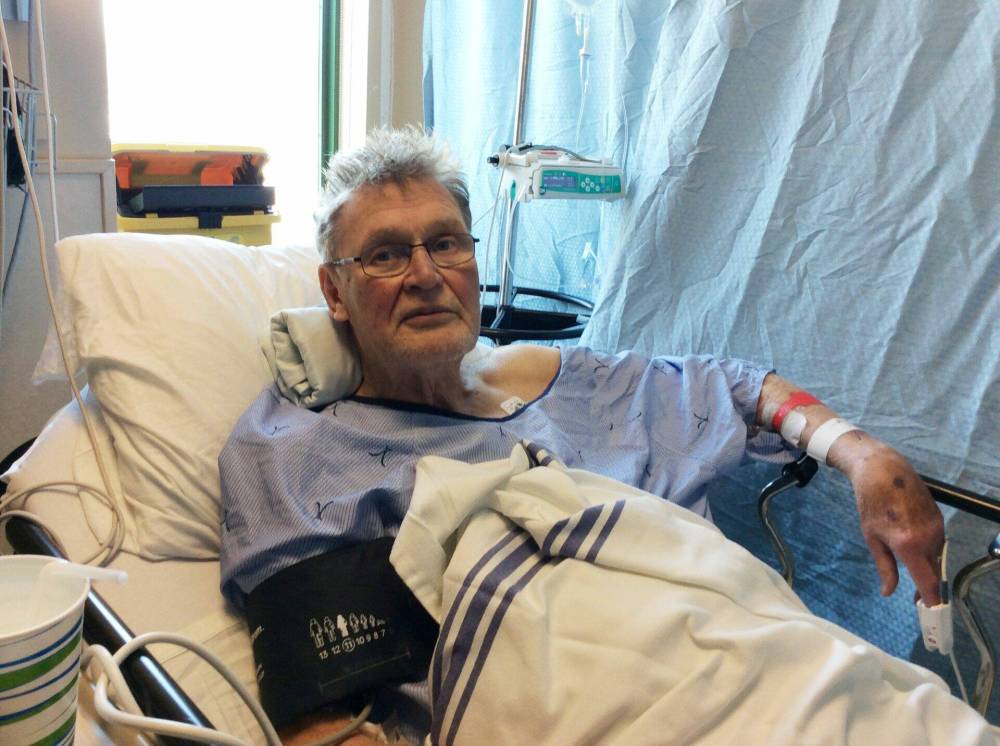Bold action required on cardiac care crisis
Advertisement
Read this article for free:
or
Already have an account? Log in here »
To continue reading, please subscribe:
Monthly Digital Subscription
$0 for the first 4 weeks*
- Enjoy unlimited reading on winnipegfreepress.com
- Read the E-Edition, our digital replica newspaper
- Access News Break, our award-winning app
- Play interactive puzzles
*No charge for 4 weeks then price increases to the regular rate of $19.95 plus GST every four weeks. Offer available to new and qualified returning subscribers only. Cancel any time.
Monthly Digital Subscription
$4.99/week*
- Enjoy unlimited reading on winnipegfreepress.com
- Read the E-Edition, our digital replica newspaper
- Access News Break, our award-winning app
- Play interactive puzzles
*Billed as $19.95 plus GST every four weeks. Cancel any time.
To continue reading, please subscribe:
Add Free Press access to your Brandon Sun subscription for only an additional
$1 for the first 4 weeks*
*Your next subscription payment will increase by $1.00 and you will be charged $16.99 plus GST for four weeks. After four weeks, your payment will increase to $23.99 plus GST every four weeks.
Read unlimited articles for free today:
or
Already have an account? Log in here »
Hey there, time traveller!
This article was published 27/05/2025 (224 days ago), so information in it may no longer be current.
In the heart of Canada, Manitoba is facing a quiet but deadly crisis. While the province boasts medical professionals of high calibre, the infrastructure they work in is failing too many of us — especially those with cardiac conditions.
A system that should offer life-saving diagnostics and treatment is instead burdened by long wait lists, fragmented care, and a troubling inequity in access to critical tests and procedures.
The consequences are not abstract. Far too many Manitobans are dying while waiting for cardiac surgery and many are not getting diagnosed early enough.

According to the Winnipeg Regional Health Authority data, 19 people died while on the wait list for cardiac surgery from 2018 to 2024. Also, because there is no centralized cardiac care program in Manitoba, many are getting bounced around between doctors, hospitals and other medical facilities and are not getting timely treatment.
Bill Worthington is one of those patients. The 73-year-old was transported to hospital by ambulance on Feb. 22 when he experienced symptoms of heart failure. Since then, he has seen doctors and nurse practitioners at various hospitals and medical clinics, but has still not received the surgery he requires.
That is unacceptable.
In Manitoba, patients with heart conditions often navigate a fractured system, bouncing between general practitioners, regional clinics and overstretched urban hospitals. In an era where co-ordination and specialization are known to save lives, Manitoba’s decentralized approach to cardiac care seems dangerously antiquated.
The absence of a co-ordinated cardiac centre means there is no streamlined pathway for patients with suspected heart failure or coronary artery disease. A central hub would allow for faster triage, integrated diagnostics and more efficient use of specialist resources. Instead, the current model leads to duplication of effort, regional disparities and deadly delays.
Perhaps nowhere is this dysfunction more evident than in the access to essential diagnostic tools like blood tests for heart failure and echocardiograms. These tests are fundamental — not optional — in diagnosing and managing cardiac conditions. Yet they are not widely available across the province. Cardiac surgeons, cardiologists and nurses have been sounding the alarm bell for years over this. They are overburdened, and they are burning out. No amount of professional dedication can overcome the structural deficits in the current system. And yet, the response from policymakers has been tepid — ranging from vague promises of improvement to delayed investments that don’t address the core issues of access and co-ordination.
What Manitoba needs now is not another task force or another report to gather dust on a shelf. The province needs bold, decisive action.
First, establish a centralized cardiac care hub in Winnipeg, capable of co-ordinating referrals, diagnostics and surgical interventions. Such a centre should be empowered to set provincial standards for cardiac care and to ensure that rural and remote communities are not left behind.
Second, ensure equitable access to diagnostic testing. This means increasing funding for lab and imaging services, training more technologists, and deploying mobile diagnostic units to reach underserved areas.
Third, address surgical wait lists with the urgency they deserve. This requires increasing operating room capacity, hiring more surgical teams, and establishing targets for wait times that reflect clinical need, not just administrative convenience.
Premier Wab Kinew and Health Minister Uzoma Asagwara have an opportunity to turn this crisis around. They can choose to lead with vision and urgency, or they can continue to preside over a system where Manitobans die waiting for care that should have been within reach.
Manitoba’s heart is failing — not just in the medical sense, but in the moral one. Let this be the moment we decide to repair it.




